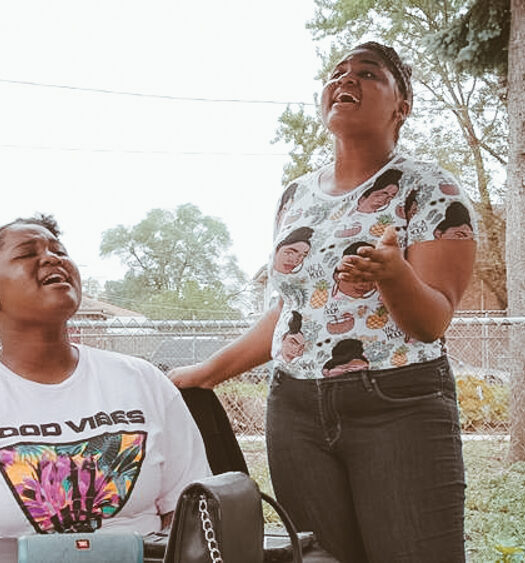What To Expect From The Closing Of Chicago’s Community Counseling Centers
 As of May 31st, Chicago will be losing one of its greatest safety nets, Community Counseling Centers of Chicago (C4). C4 serves over 10,000 children and adults annually and provides an array of mental health services from overcoming substance use to recovering from trauma. This is devastating news to a city with more than 14 percent of people living below the poverty line (60 percent in a number of neighborhoods) and with 53 percent of children ages 3-17 having one or more emotional, behavioral or developmental condition.
As of May 31st, Chicago will be losing one of its greatest safety nets, Community Counseling Centers of Chicago (C4). C4 serves over 10,000 children and adults annually and provides an array of mental health services from overcoming substance use to recovering from trauma. This is devastating news to a city with more than 14 percent of people living below the poverty line (60 percent in a number of neighborhoods) and with 53 percent of children ages 3-17 having one or more emotional, behavioral or developmental condition.
Unfortunately, this news is all too familiar to Chicago residents. In April 2012, six of 12 mental health clinics were shut down as a “consolidation” of services. This year, Governor Bruce Rauner proposes millions (a 15 percent reduction to be exact) in cuts yet again.
What’s ironic is these cuts are more like shots in the foot. Expensive ones. When people are not receiving the support they need, they engage in risky behaviors which result in incarceration, hospitalization, unhealthy choices, the over-prescribing of medication and fostering of Adverse Childhood Experiences (ACEs). With nowhere to turn, families in crises resort to emergency rooms where they essentially get a band-aid for a much deeper wound. This results in repeat visits and has caused a 37 percent rise in Chicago ER discharges for mental health over the past six years.
Whenever a program closes, the plan is for others to absorb the displaced individuals however, as people are concentrated in number, quality will be sacrificed. People thrive with consistency in services. Most mental health professionals are already inundated with clients as is – especially due to the existing cuts. Transitioning a person from one clinic to another may take months. After waiting months for services, individuals may have regressed in their progress and will also have to start a new working relationship and rapport with a new professional.
While C4 cited “an internal matter” as the result of its closure, it’s evident that mental health services are being set up for failure rather than success. “Consolidating” services is one example but there are more. C4 had difficulty transitioning to an electronic billing system – a change being implemented across the country. With new technology comes the need for effective technology as well as tech support and knowledge. Challenges can arise as professionals need access to computers and/or devices to bill for services. This points to a larger, crucial issue of whether the mental health system is keeping up with the world of technology and seizing the opportunity tech presents for providing efficient, quality services.
Instead of consolidating, we should be innovating. There are also plenty of existing evidence-based programs that are cost-effective. Some of these programs are home and community based – minimizing costs of having a clinic or facility. I am reminded of what Brené Brown has shared, “Blame [is] a way to discharge pain and discomfort.” Instead of wasting time pointing fingers, let’s ask, how we can be smarter about approaching our mental health system? How can we be more compassionate to our most vulnerable? In what ways are we failing them? One way we can start is together.
Are you a resident of Chicago seeking help? Check out Thresholds.org.
FROM THE EDITOR
At Conscious, we are inspired by remarkable people and organizations and so we set out to tell stories that highlight human-interests, global initiatives, innovation, community development, and social impact. You can read more stories like this when you subscribe.



